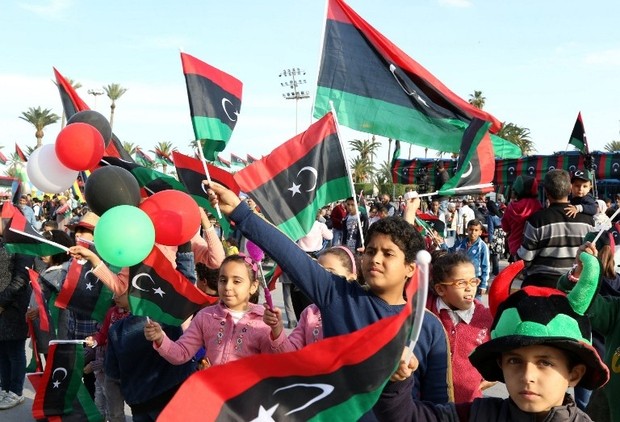Controversy surrounds new “Libyan-Libyan unity plan

Lingering opposition to a UN-backed unity agreement in Libya was exposed on Wednesday when a new rival process was proposed by a member of the Tripoli-based parliament, only to be rejected as unrepresentative of the house.
The proposal released on Tuesday called for a “Libyan-Libyan” alternative to the UN-brokered deal, suggesting a new temporary legislative body composed of members of Tripoli’s General National Congress, and 100 tribal leaders from the eastern region to oversee the drafting of a new constitution and elections.
The plan, announced by Abdel Qader Huweili of the self-titled GNC “Political Committee”, was rejected within hours by others within the GNC. Senior parliament member Mahmoud Aziz told the Middle East Eye it was “an individual initiative that does not represent the GNC” and lacked support.
But Huweili’s proposal appeared to be an attempt to sideline members of the House of Representatives, the Tobruk-based parliament and rival to the GNC, and undercut the UN deal.
The UN deal for a Government of National Accord (GNA), bringing together both legislatures after a year-long schism, was supported by the majority of both houses earlier this month. However, the presidents of both have refused to sign the deal, pushing analysts to speculate on its chances of success.
Some criticis have slammed the UN deal, saying that it could be used as an excuse to begin a bombing campaign against militants in the country, although Libya’s UN ambassador, Ibrahim Dabbashi, denies this and has stressed that authorities have no plans to request Western air strikes.
Huweili’s latest plan suggests residual opposition to the deal among rank-and-file members of the GNC.
Mattia Toaldo, of the European Council on Foreign Relations, said that he doubted that the alternative would be preferred over the UN proposal, as the latter has been gaining momentum over the past few days.
“I think the strength of an alternative format would be probably in Tripoli although even there, there are lots of signals there that militias are siding with the UN government,” Toaldo told MEE.
“I don’t see where a Libyan-Libyan so-called track would gain any significant traction although one must take into account that the UN track was tarnished by Leongate, so many Libyans are wary of that, regardless of its outcome.”
Leongate refers to the scandal of former UN envoy to Libya Bernadino Leon, who through leaked emails was revealed to have been working with the UAE to back the HoR side in the Libyan conflict.
The UN-brokered GNA states that a unity government between the two rival parliaments should be formed within a month on the 17 December signing. A nine-member presidential council has already been filled.
“There should be a debate in the House of Representatives this week about the GNA and that’s going to be a crucial element of the puzzle because if the HoR is not supportive somehow then the UN deal cannot work because it is predicated on the HoR [functioning] as the main legitimate authority,” Toaldo said.
Libya descended into chaos following the 2011 revolt against long-time leader Muammar Gaddafi.
The oil-rich country has had rival administrations since August 2014, when an Islamist-backed militia alliance overran Tripoli, forcing the HoR government to take refuge in the east.
In the political vacuum of having two parliaments vying for legislative authority, militants claiming association with IS have emerged across the country. Sirte, the birthplace of Gaddafi, is home to a group of militants that now claim the town as IS’s Libyan capital.
Source: Middle East Eye
How to submit an Op-Ed: Libyan Express accepts opinion articles on a wide range of topics. Submissions may be sent to oped@libyanexpress.com. Please include ‘Op-Ed’ in the subject line.
- Al-Mangoush breaks silence on controversial Israel meeting - January 06, 2025
- Libyan buyers join Qatar’s Souq Waqif truffle auction - January 06, 2025
- Libya adds Bell 429 helicopters to air ambulance fleet - January 06, 2025


